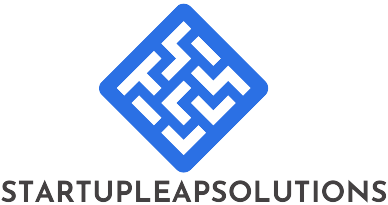Table of Contents
ToggleIn a world where cash is becoming as rare as a unicorn, fintech software development services have emerged as the magical solution to all things financial. With the rise of digital wallets and mobile banking, it’s no wonder that businesses are scrambling to keep up. After all, who wants to be the last one at the party when everyone else is dancing to the beat of innovation?
Overview of Fintech Software Development Services
Fintech software development services play a crucial role in the evolution of financial technologies. Companies leverage these services to create solutions that enhance user experience and streamline operations. Various types of software address specific financial needs, including mobile applications, payment gateways, and data analytics tools.
Digital payment solutions form a significant part of fintech software. These allow users to conduct transactions seamlessly, enhancing customer engagement. Mobile banking applications offer instant access to account information, promoting user convenience and financial literacy.
Data security remains a top priority in fintech. Strong encryption protocols and compliance with regulations ensure the safe handling of sensitive information. Financial institutions often seek software that integrates advanced security features to protect user data effectively.
Custom software solutions focus on meeting individual business requirements. These solutions can adapt to specific operational workflows, providing scalability and flexibility. By investing in bespoke software, organizations can achieve a competitive advantage in the market.
Regulatory technology, or regtech, supports compliance management within fintech services. Companies utilize regtech software to automate compliance tasks, reducing the risk of non-compliance. This not only saves resources but also streamlines reporting processes, enhancing operational efficiency.
Artificial intelligence and machine learning technologies are transforming fintech software. These technologies facilitate predictive analytics and improve customer service through chatbots. As a result, businesses harness insights from vast amounts of data, enabling informed decision-making.
Collaboration with software development firms enhances the capability to innovate in fintech. Expertise in agile methodologies ensures rapid, efficient software development, aligning with market demands. Effective partnerships amplify resource sharing, driving progress in the ever-changing financial landscape.
Key Features of Fintech Software Solutions

Fintech software solutions encompass several essential features that address the evolving needs of the financial industry. Among these, scalability and security measures stand out as crucial elements.
Scalability
Scalability facilitates the growth of fintech solutions without compromising performance. As user demand fluctuates, software must accommodate increased transaction volumes seamlessly. Robust cloud infrastructure supports this demand, allowing businesses to expand their services efficiently. Flexible architecture enables quick updates and feature additions, adapting to market trends. Businesses benefit from scalable solutions by delivering consistent user experiences even during peak usage. Effective scalability enhances operational efficiency while reducing downtime and associated costs.
Security Measures
Security measures form the backbone of fintech software solutions, ensuring the protection of sensitive user data. Strong encryption protocols safeguard information during transmission and storage. Adherence to regulatory standards, such as GDPR and PCI DSS, further reinforces compliance and builds customer trust. Multi-factor authentication serves as an additional layer of security, minimizing unauthorized access risks. Regular security assessments and updates ensure that vulnerabilities are addressed promptly. Investing in comprehensive security measures not only protects assets but also enhances credibility in the competitive fintech landscape.
Popular Technologies in Fintech Development
Fintech development relies on advanced technologies to enhance services and improve user experiences. Two of the most impactful technologies include blockchain and artificial intelligence.
Blockchain
Blockchain technology provides transparency and security in financial transactions. It enables decentralized networks to process transactions, reducing the risk of fraud. Companies use blockchain for smart contracts, which automate agreements and enhance efficiency. Enhanced security protocols protect sensitive information from unauthorized access. Many fintech solutions utilize blockchain to streamline cross-border payments, making them faster and cheaper. The ability to track transactions improves accountability, offering customers peace of mind. Adoption of this technology is increasing as more businesses recognize its potential for transforming financial services.
Artificial Intelligence
Artificial intelligence adds significant value to fintech by optimizing decision-making processes. It allows for advanced data analytics, extracting insights from vast amounts of financial data. Financial institutions employ AI-driven chatbots to enhance customer service, providing immediate assistance 24/7. Predictive analytics helps in identifying potential market trends, enabling better investment strategies. Fraud detection systems leverage AI to analyze transaction patterns, flagging suspicious activities in real time. Personalization improves user experiences, tailoring offerings to individual needs based on behavioral data. Overall, AI significantly enhances operational efficiency and customer engagement in the fintech landscape.
Benefits of Fintech Software Development Services
Fintech software development services provide significant advantages for businesses aiming to navigate the evolving financial landscape. Key benefits include cost efficiency and enhanced user experience.
Cost Efficiency
Cost efficiency emerges as a primary benefit of fintech software development. Customized solutions reduce operational costs by automating manual processes, freeing up resources for strategic initiatives. Specific software tools streamline transactions, minimizing fees associated with traditional banking methods. Implementing cloud-based solutions also decreases overhead expenses and increases flexibility. As a result, companies can allocate funds more effectively, prioritizing innovation and growth. Furthermore, the ability to scale solutions helps businesses adapt quickly to market demands, further enhancing financial efficiency.
Enhanced User Experience
Enhanced user experience defines the success of fintech applications. Intuitive interfaces create seamless customer interactions, improving user satisfaction. Personalized services, derived from data analytics, cater to individual preferences and needs. Fast transaction processing reinforces this positive experience, fostering customer loyalty. Additionally, innovative features such as AI-driven chatbots offer support around the clock, ensuring users receive timely assistance. These efforts build trust and engagement, essential for retaining customers in a competitive market. Overall, focusing on user experience leads to increased adoption and sustained growth for fintech companies.
Challenges in Fintech Software Development
Fintech software development encounters several significant challenges. Data security concerns consistently rank at the top of priorities. Ensuring strong encryption and compliance with various regulations proves essential to protect sensitive consumer information. The regulatory landscape frequently evolves, presenting constant adaptation requirements for fintech solutions.
Competition within the fintech sector intensifies every day. Companies face pressure to innovate and deploy new features quickly, which can strain resources and impact quality. Striking a balance between rapid development and maintaining high-quality standards often poses a considerable challenge.
Scalability also represents a critical consideration in fintech development. As transaction volumes grow, systems must accommodate increased loads without sacrificing performance. Efficient cloud infrastructure plays a pivotal role in enabling this level of scalability and flexibility.
User experience must not be overlooked during the development process. Simplifying interfaces while integrating advanced features requires careful design strategy. A seamless experience fosters customer loyalty and encourages adoption, further complicating the development timeline.
The integration of emerging technologies like blockchain and artificial intelligence introduces additional complexities. Developers must not only understand these technologies but also effectively implement them. Enhanced security and improved operational efficiency depend on the integration of such innovations, demanding skilled teams familiar with the latest trends.
Finally, collaborating with software development firms presents its own set of difficulties. Aligning vision and objectives between partners can lead to miscommunication or misalignment in project goals. Establishing clear communication channels can mitigate these challenges, fostering a collaborative environment to drive successful outcomes.
The landscape of fintech is rapidly evolving and businesses must embrace these changes to thrive. Investing in fintech software development services is no longer optional; it’s essential for staying competitive. With a focus on user experience security and scalability companies can leverage innovative technologies to drive growth.
By adopting customized solutions and integrating advanced features like AI and blockchain organizations can enhance operational efficiency and customer engagement. As challenges arise in this dynamic sector collaboration and clear communication with development teams will be key to navigating the complexities of fintech. Embracing these strategies will position businesses for success in the digital financial ecosystem.








